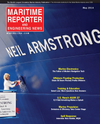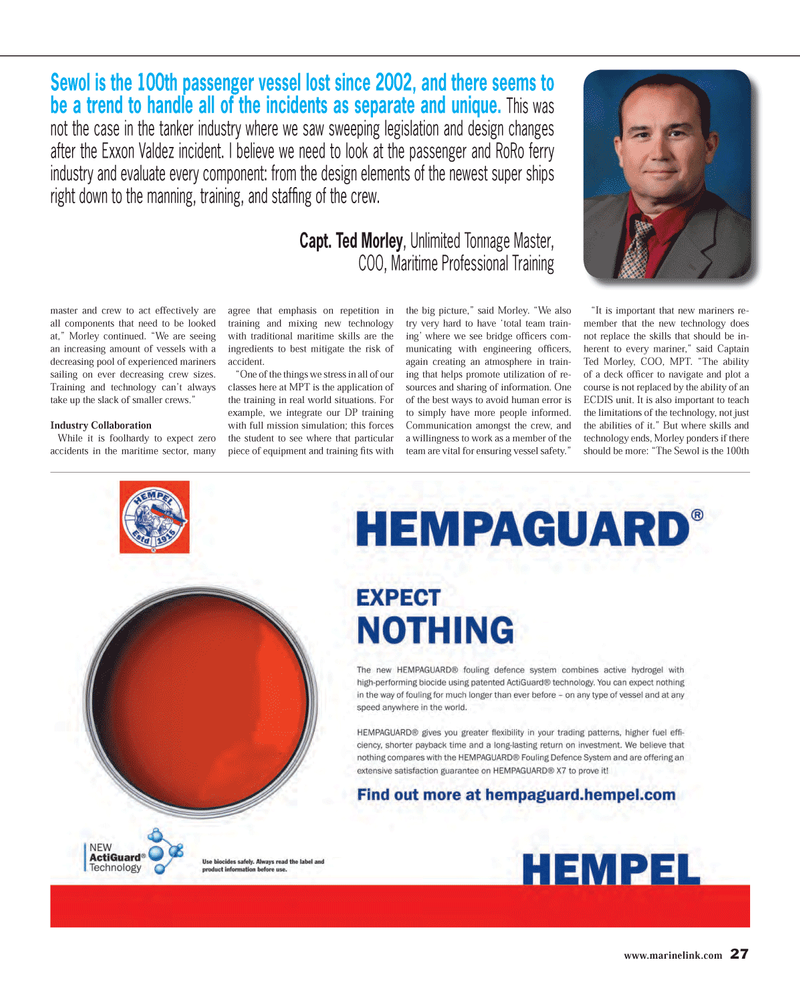
Page 27: of Maritime Reporter Magazine (May 2014)
Marine Electronics Edition
Read this page in Pdf, Flash or Html5 edition of May 2014 Maritime Reporter Magazine
www.marinelink.com 27 master and crew to act effectively are all components that need to be looked at,” Morley continued. “We are seeing an increasing amount of vessels with a decreasing pool of experienced mariners sailing on ever decreasing crew sizes.
Training and technology can’t always take up the slack of smaller crews.”
Industry Collaboration
While it is foolhardy to expect zero accidents in the maritime sector, many agree that emphasis on repetition in training and mixing new technology with traditional maritime skills are the ingredients to best mitigate the risk of accident. “One of the things we stress in all of our classes here at MPT is the application of the training in real world situations. For example, we integrate our DP training with full mission simulation; this forces the student to see where that particular piece of equipment and training fi ts with the big picture,” said Morley. “We also try very hard to have ‘total team train- ing’ where we see bridge offi cers com- municating with engineering offi cers, again creating an atmosphere in train- ing that helps promote utilization of re- sources and sharing of information. One of the best ways to avoid human error is to simply have more people informed.
Communication amongst the crew, and a willingness to work as a member of the team are vital for ensuring vessel safety.” “It is important that new mariners re- member that the new technology does not replace the skills that should be in- herent to every mariner,” said Captain
Ted Morley, COO, MPT. “The ability of a deck offi cer to navigate and plot a course is not replaced by the ability of an
ECDIS unit. It is also important to teach the limitations of the technology, not just the abilities of it.” But where skills and technology ends, Morley ponders if there should be more: “The Sewol is the 100th
Sewol is the 100th passenger vessel lost since 2002, and there seems to be a trend to handle all of the incidents as separate and unique. This was not the case in the tanker industry where we saw sweeping legislation and design changes after the Exxon Valdez incident. I believe we need to look at the passenger and RoRo ferry industry and evaluate every component: from the design elements of the newest super ships right down to the manning, training, and staffi ng of the crew.
Capt. Ted Morley, Unlimited Tonnage Master,
COO, Maritime Professional Training
MR #5 (26-31).indd 27 5/2/2014 8:14:04 PM

 26
26

 28
28
